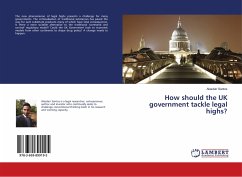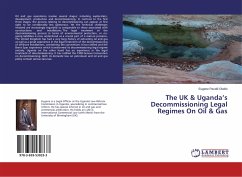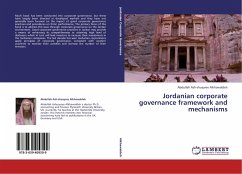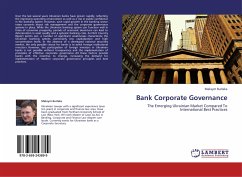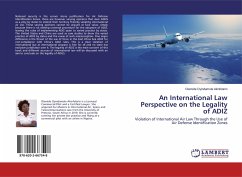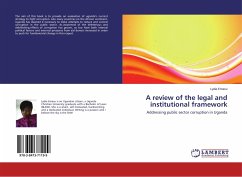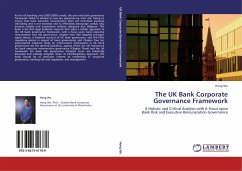
The UK Bank Corporate Governance Framework
A Holistic and Critical Analysis with A Focus upon Bank Risk and Executive Remuneration Governance
Versandkostenfrei!
Versandfertig in 6-10 Tagen
52,99 €
inkl. MwSt.

PAYBACK Punkte
26 °P sammeln!
As the UK banking crisis (2007-2009) unveils, the pre-crisis bank governance framework failed to achieve its two-tier objectives by, inter alia, failing to ensure that bank executive remuneration does not incentivise excessive risk-taking and is not excessive and to effectively discourage unduly risky business models and acquisitions without adequate due diligence. This book is the first legal academic research that takes a holistic approach to the UK bank governance framework, with a focus upon bank executive remuneration and risk governance. Chapter One (the adapted principal-agent theory, a...
As the UK banking crisis (2007-2009) unveils, the pre-crisis bank governance framework failed to achieve its two-tier objectives by, inter alia, failing to ensure that bank executive remuneration does not incentivise excessive risk-taking and is not excessive and to effectively discourage unduly risky business models and acquisitions without adequate due diligence. This book is the first legal academic research that takes a holistic approach to the UK bank governance framework, with a focus upon bank executive remuneration and risk governance. Chapter One (the adapted principal-agent theory, a historical account of UK bank governance, and the FSA's regulatory system in respect of bank governance) and Chapter Two (an experimental empirical study on enforcement mechanisms in UK bank governance) set the general backdrop, against which the UK framework for bank executive remuneration governance (Chapter Three) and the UK framework for bank risk governance (Chapter Four) are holistically discussed and critically analysed. Given its interdisciplinary approach, this book should be of particular interest to readerships in corporate governance, banking law and regulation, and management.




